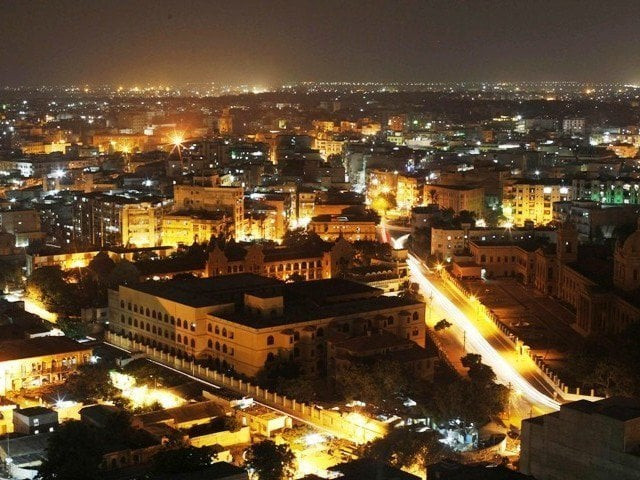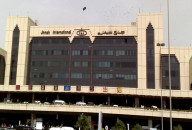World Bank appreciates efforts, with words of caution
Country has made great progress, more needs to be done, says country director Illango Patchamuthu

The report highlights that the pace of Pakistan’s economic growth will accelerate modestly through to 2019. PHOTO: REUTERS
The World Bank has applauded the government for restoring economic stability, according to its twice-a-year Pakistan Development Update released on Thursday.
However, it noted that much of the country’s economic growth was underpinned by external influences, such as low oil prices and strong remittances, while private and public investments continue to remain low.
Pakistan's economic output rising at healthy pace
“Pakistan has made great progress in restoring macroeconomic stability, but much more needs to be done to put Pakistan on a solid, economic growth footing,” said Illango Patchamuthu, World Bank Country Director for Pakistan. “Persistent, steady progress on the structural reform agenda will be necessary if Pakistan is to accelerate its growth recovery and lift millions more out of poverty.”
The latest Pakistan Development Update sets out recent developments across the economy and identifies risks and next steps facing Pakistan’s near-term future before focusing in on a handful of key development challenges.
The report highlights that the pace of Pakistan’s economic growth will accelerate modestly through to 2019. However, significant risks remain and the country should guard against global slowdown by continuing to make key reforms, including expanding electricity supply, boosting tax revenues, strengthening the business environment and encouraging the private sector to invest.
The report identifies services and large-scale manufacturing as the key supply-side drivers of growth. Services are expected to grow over 5% in 2015-16 while large-scale manufacturing, benefitting from low global commodity prices, is expected to grow between 4-4.5%. On the demand side, consumption is driving growth, fuelled by rising remittances and a loose monetary stance, the World Bank said.
ADB report: Pakistan may face concerns over external account stability
The report is optimistic about recent progress in fiscal consolidation, highlighting 20% growth in the revenues of the Federal Board of Revenue (FBR) for the first eight months of 2015-16. “Fiscal consolidation is one of the most significant reform challenges facing Pakistan today,” said Enrique Blanco Armas, World Bank Lead Economist for Pakistan. “The federal government has kept a tight rein on recurrent expenditure, while continuing to invest in Public Sector Development Program expenditure, a very positive development.”
Workers’ remittances and lower oil prices contributed most to the accumulation in foreign reserves, according to the report. Remittances of $9.7 billion in the first half of 2015-16 more than compensated for the trade deficit, and oil prices delivered a 9.1% fall in the import bill, it said.
The strong balance of payments headline figures, however, mask the structural weaknesses in Pakistan’s export competitiveness, the report noted. Exports fell by 11.1% in the first half of 2015-16 as a result of softer global demand and domestic bottlenecks. Port charges in Karachi, for example, are nine times higher than those in Dubai and Singapore, it noted.
Shipping container dwelling times are three times longer than in East Asia, it added. Exporters who want to participate in global supply chains are hamstrung by these constraints, the World Bank said.
Published in The Express Tribune, April 29th, 2016.
Like Business on Facebook, follow @TribuneBiz on Twitter to stay informed and join in the conversation.



















COMMENTS
Comments are moderated and generally will be posted if they are on-topic and not abusive.
For more information, please see our Comments FAQ